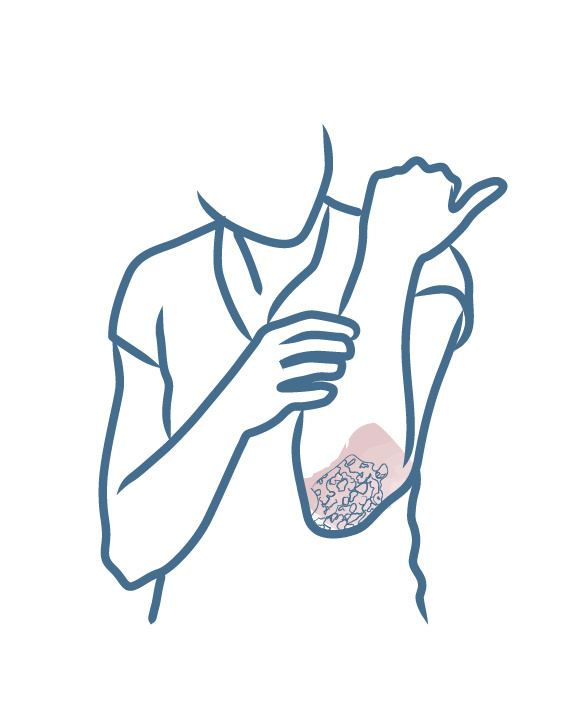-
Your concerns
Our articles to help you gain a better understanding
-
Our solutions
-
Ducray Dermatological laboratories
Our articles to help you gain a better understanding

This is the question most often asked by people who don't have psoriasis: is psoriasis contagious? This issue of whether psoriasis is contagious or not is the most common misconception about the disease and it needs to be challenged: no, psoriasis is not contagious!

Summary
Skin inflammation and the appearance of plaques are not caused by an infection and therefore there is no risk of the disease being transmitted from one person to another. Shaking hands, kissing people on the cheek, swapping clothes...All these everyday interactions are completely safe. However, for people with psoriasis, who have to cope with other people staring, their eyes filled with questions, fear and even disgust, this social contact can be an awkward experience. The fear of psoriasis and contagion becomes an even more complicated issue at school, in the workplace, during leisure activities, or even when shopping.
Furthermore, psoriasis is not caused by poor hygiene. It is true that psoriasis plaques are often thick, with peeling skin and small white flakes known as scales that are sometimes found on hair or clothing. However, while all this is not very pleasing to the eye, it does not mean the person is dirty! Psoriasis is a disease caused by many factors such as genetics, climate, friction and stress. Having more showers or baths will not get rid of psoriasis, on the contrary, it may damage the skin even more.
That being said, it should be noted that although psoriasis plaques are not contagious, they can become superinfected, like with any other skin disease. The skin is a living area and/or passageway for many microbial species inclined to colonize psoriasis lesions. To prevent this, it is recommended to avoid touching lesions apart from when caring for your skin, to wash your hands before and after each treatment, to keep your nails short, and to see a doctor immediately if your lesions change in appearance, or you have a fever... For all that, cases of superinfection are pretty rare.
Psoriasis-prone skin

Skin prone to stubborn dry plaques
NEWSLETTER
Dermatological expertise
To better understand your skin and hair, discover our exclusive content and innovative care products designed to improve your quality of life..